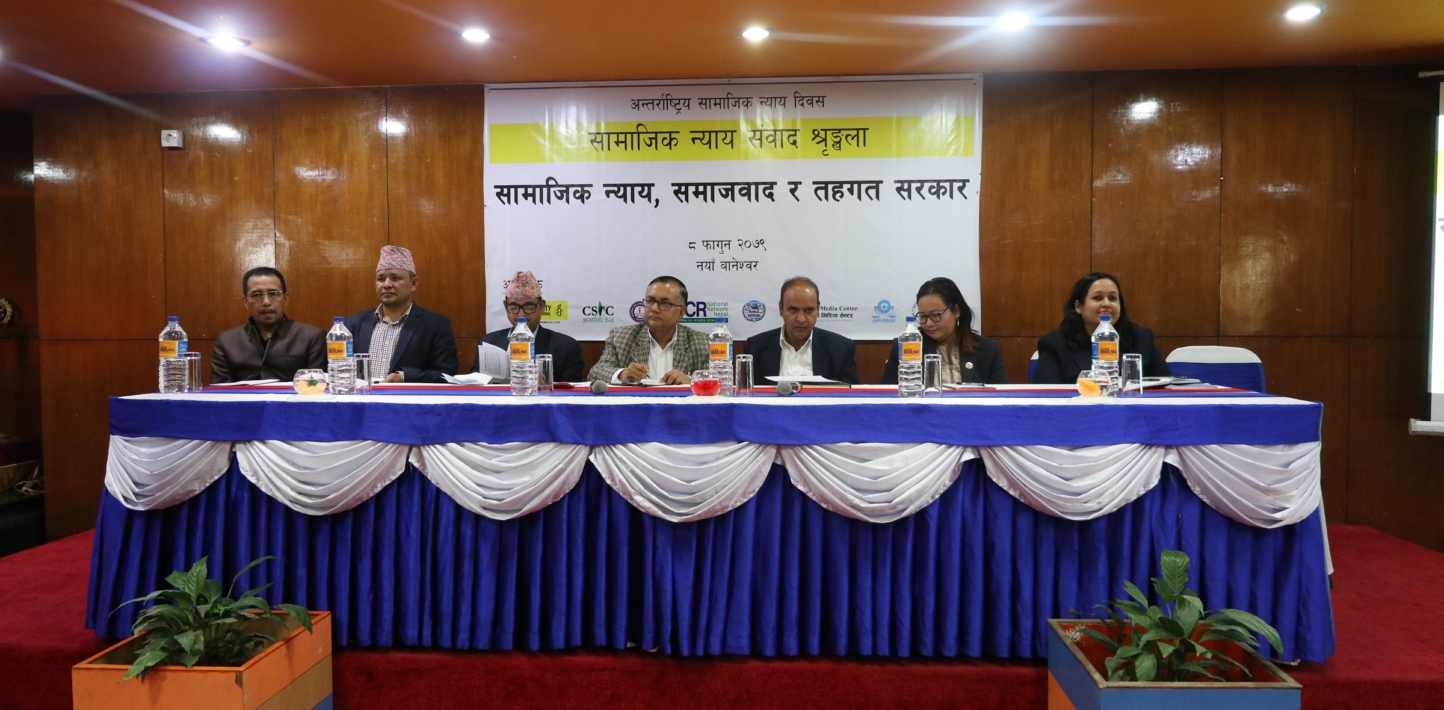On the occasion of World Day of Social Justice on 20 February, Amnesty International Nepal (AI Nepal), along with seven partner organisations, co-organised an interactive discussion event on the topic entitled Social Justice, Socialism, and Tiers of Government. The discussion formed part of the Social Justice Dialogue Series on how the vision of social justice and socialism as envisaged in the Constitution of Nepal can be realized.
The event was co-organised by Amnesty International Nepal, Community Self Reliance Centre, JuRI–Nepal, Jagaran Media Centre, National Network on Economic, Social and Cultural Rights, Human Rights Journalists’ Association (HURJA), Nepal Mahila Ekata Samaj, and Constitutional and Judicial Journalists’ Forum.
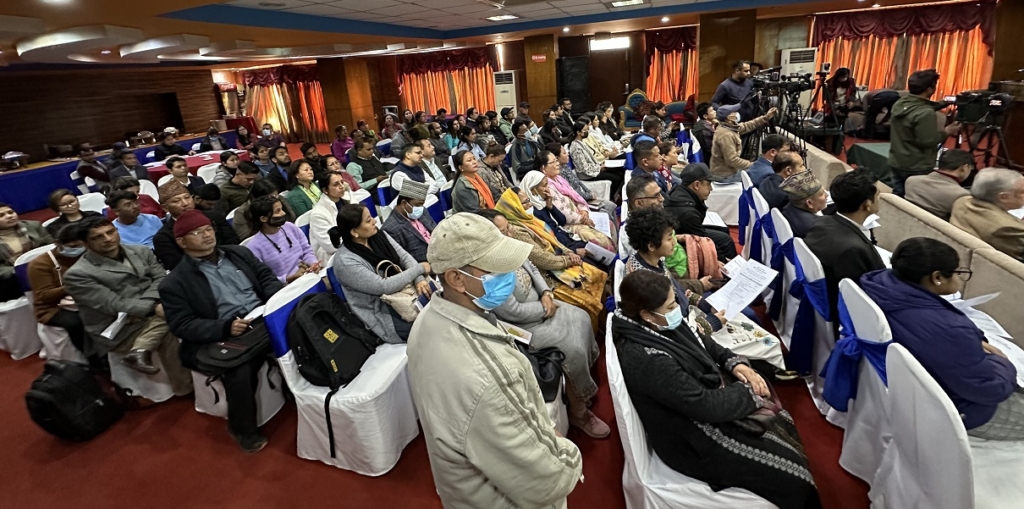
The event was attended by Hon. Saraswati Subba, member of the House of Representatives, joint-secretary Aruna Joshi from the Office of the Prime Minister and Council of Ministers, and representatives from various agencies including the Ministry of Law, Justice and Parliamentary Affairs, Ministry of Home Affairs, Office of the Attorney General, Indigenous Nationalities Commission, National Madhesi Commission, Valley Development Authority, National Human Rights Commission, National Land Commission, High Powered Committee for Integrated Development of the Bagmati Civilization, UN Resident Coordinator’s Office, civil society organizations, media and individuals from the affected community due to the forced eviction of landless squatters, informal settlers, and street vending businesses.
The discussion was facilitated by Ghanshyam Khadka, the Chair of Human Rights and Journalists’ Association (HURJA).
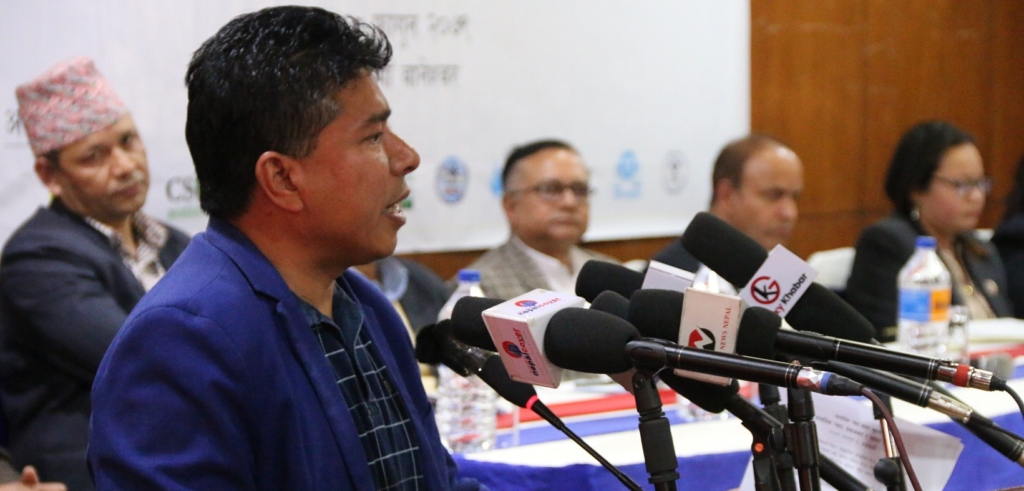
AI Nepal Director Nirajan Thapaliya set the tone of the event by explaining the objective behind organizing the dialogue series. He said that the Nepali society continued to grapple with the continuing situations of marginalisation, deprivation, discrimination, exploitation, and injustice feeding into extreme poverty, violence, economic inequalities, disproportionate distribution of economic, social and political opportunities among the people. Many political and social struggles, some of them armed, ultimately culminated into the promulgation of the current Constitution of Nepal, 2015 which carried a broad vision of social justice, equity and equality thereby instilling high hopes among people. “There is a need to evaluate and review whether the government, CSOs, and other stakeholders have been able to work towards the fulfilment of this broad vision and hope offered by the constitution. While some may associate the term ‘socialism’ with political overtones, the constitution, in fact, projects the term with a humanistic brace”, said Thapaliya.
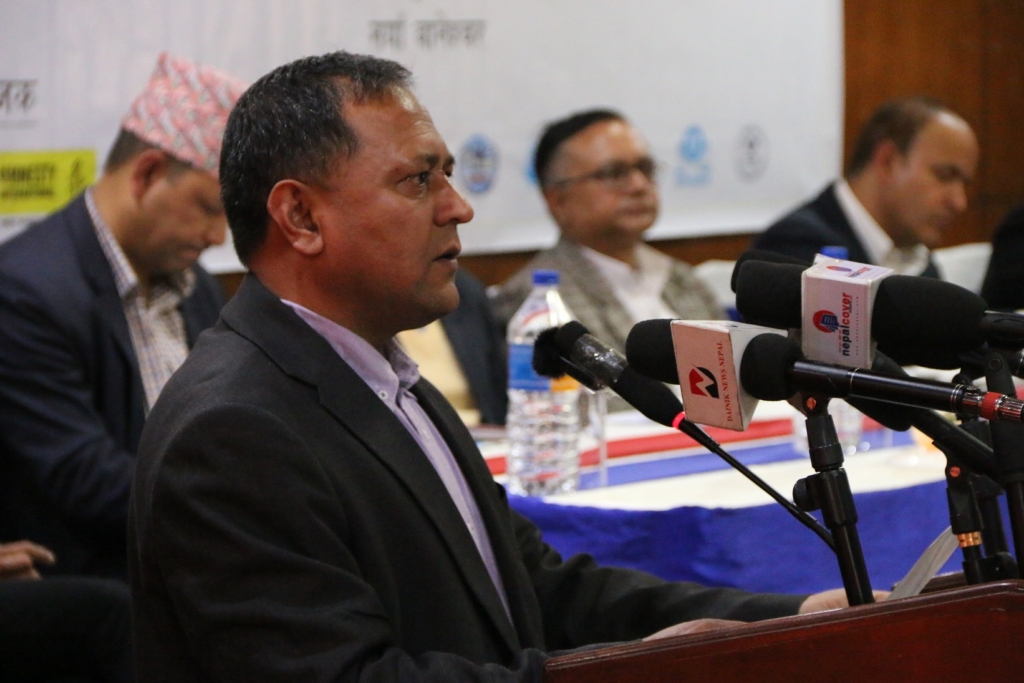
There is a need to evaluate and review whether the government, CSOs, and other stakeholders have been able to work towards the fulfilment of this broad vision and hope offered by the constitution. While some may associate the term ‘socialism’ with political overtones, the constitution, in fact, projects the term with a humanistic brace
Nirajan Thapaliya, Director, Amnesty International Nepal
Sabitri Thapa of Nepal Mahila Ekata Samaj presented a video collage depicting the use of force by the security forces during the attempted forced eviction exercise on 28 November 2022. She presented the issues relating to informal settlements and touched upon the history of informal settlements in Kathmandu valley, the reasons for the continued existence of these settlements, the emotional connection the settlers have with their locality, and the social stigma they face. She explained that that the informal settlements contributed to the urban economy as the members provided affordable services to offices and homes in the city and that such settlements acted as conservator of the public land by protecting the public land from being encroached upon by powerful actors. She dispelled the narration that the settlers were well-off opportunistic individuals free-riding on public land by stating that settlers too had the right to economic and social development, and that the little progresses made by few individuals during the normal course of life should not be weaponized.
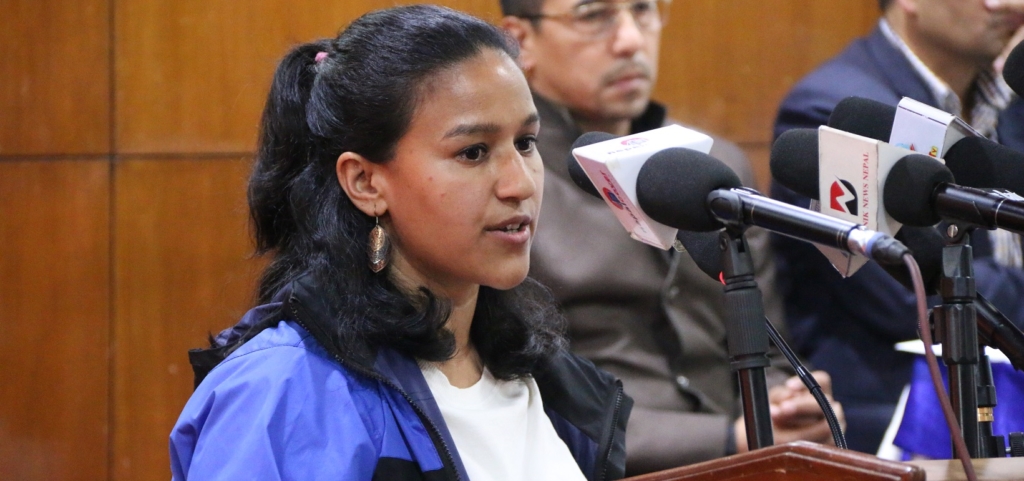
Then followed a presentation by advocate Raju Prasad Chapagain who shed light on the background, international legal framework and Nepal’s constitutional vision regarding the concept of social justice. He also pointed out the challenges, opportunities and the way forward for the realisation of social justice in Nepal. He cautioned the political establishment that the Nepali people struggled not merely for electoral justice but also for social justice, and that if the political establishment did not heed that, Nepal might see conflict and instability again.
Chapagain also pointed out the lack of coordination, cooperation and joint investment between the three tiers of the government. He pointed out that “the obligations to respect, protect, fulfil, and create conducive environment for the realisation of the rights are incidental upon all tiers of government and therefore, if the actions of the local level or provincial level governments resulted in human rights violations, the federal government should step in to protect the rights of the people.”
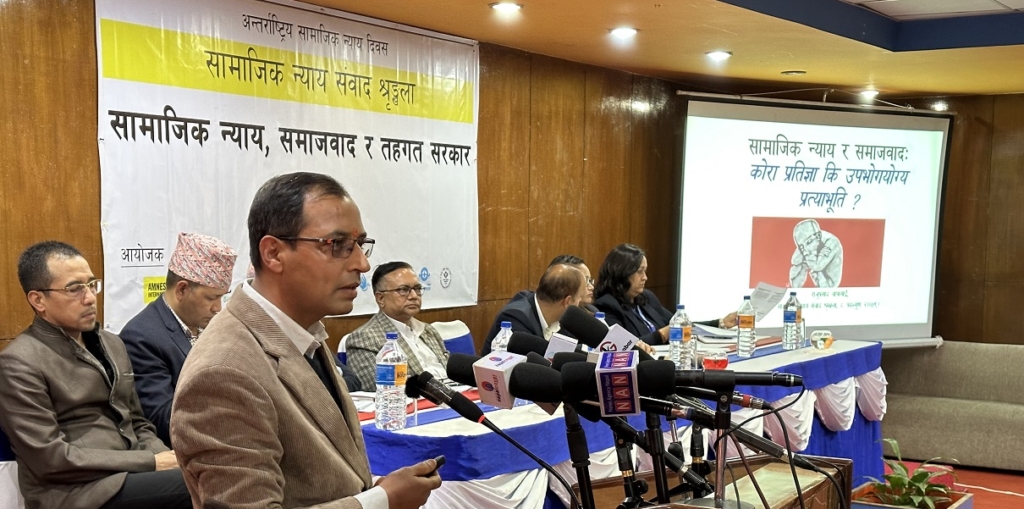
Chapagain also enumerated the problems in the realisation of social justice in Nepal viz. extreme poverty, landlessness, hunger, lack of adequate housing, food insecurity, deprivation from access to basic health services, forced eviction of landless squatters and street vendors, unsecure land tenure, financial institutions’ fraud and loan shark issues, violations faced by the people in the buffer zones of the protected areas, social and ethnic inequality and violence, labour exploitation, fraudulent and unsafe foreign employment, lack of access to adequate relief and reparations by the conflict victims, violations faced by the victims of natural disasters, and corruption-induced gross diversion of public resources.
He also listed out the major challenges in the realisation of social justice as the State’s hypocrisy in merely promulgating constitutional and legal rights but not making adequate delegated legislations to implement such rights and the lack of or lopsided understanding of economic, social and cultural rights, weak monitoring by human rights organisations and media, politicization of the issues related to social justice, lack of coordination and cooperation between different tiers of the government, lack of people’s participation in development activities, and uncontrolled private sector. He pointed out that there was a need for change in the current course and transformation in the institutional behaviour and mindsets to realise social justice as envisaged in the constitution and international human rights documents.
Januka Pokharel, a member of informal settlement and a victim of forced eviction shared the experiences of terror and horror faced by herself and members of her locality when the local government authorities used brute force to try and evict them without an alternative. She recalled the forced eviction of 2012 when the authorities surrounded the informal settlement at mid-night destroying the settlement at dawn. She expressed that the settlers had high hopes and optimism that the newly elected political leadership of Kathmandu Metropolitan City would listen to their plights and employ pro-poor policy. However, such hopes were shattered when Kathmandu Metropolitan City deployed bulldozer in November 2022 to destroy their settlement in abject violation of the agreement they signed with the National Land Commission. She questioned whether settlers were soft targets as economically and socially powerful persons who had encroached upon public land were left untouched, while the poor and economically downtrodden like herself were made the easy target. She also questioned the media that covered the event in an insensitive manner by spinning the issue and villainizing the settlers.
Maiya Ale, a street vendor, who has faced the brunt of Kathmandu Metropolitan City’s policy of uprooting street vending, stated that people like her were forced to resort to street vending due to the harsh economic and other hardships they faced. She stated that street vendors had to face a litany of harassment and abuses from the Municipal Police in their attempt to salvage a livelihood for themselves and their family.
The presentations and experience sharing sessions was followed by a panel discussion which was joined by representatives of different ministries and government agencies. Shyam Krishna Prajapati, the Kathmandu District Chair of the National Land Commission stated that his team had tirelessly put efforts to resolve the issues regarding land relations in the informal settlement. He pointed out that due to the portrayal of informal settlement in a negative manner, the public perception turned antagonistic. He said his team prepared reports depicting the true situation of landless settlers with the hope of changing the public perception. He pointed out that while landless persons were getting due rights in other parts of the country, settlers in Kathmandu Metropolitan City were deprived of the right due to the reluctance of the Metropolitan City to collect and verify the data of the actual settlers as per the agreement.
Jagat Deuja, expert commissioner of the erstwhile Land Issues Resolving Commission stated that the issues of landlessness, urban informal settlement and street vendors were major impediment on the realisation of social justice. He further expressed, “the distribution of opportunities, resources and properties in Nepal, including land, water, forest resources, are unjust. The fact that the metropolitan city’s reluctance on collecting data of the settlers in a participatory manner indicates the class on behalf of which the current political leadership of metropolitan city is working. He expressed that all persons including the poor, landless, informal settlers, labourers, and street vendors have dignity and identity and that the leadership must be able to represent these marginalized persons as well.” He expressed his solidarity and respect towards the movement against forced eviction in Kathmandu but cautioned that social movements of labourers, women, landless, and informal settlers is getting weak by the day, and therefore the need to reenergize those movements to achieve social justice.
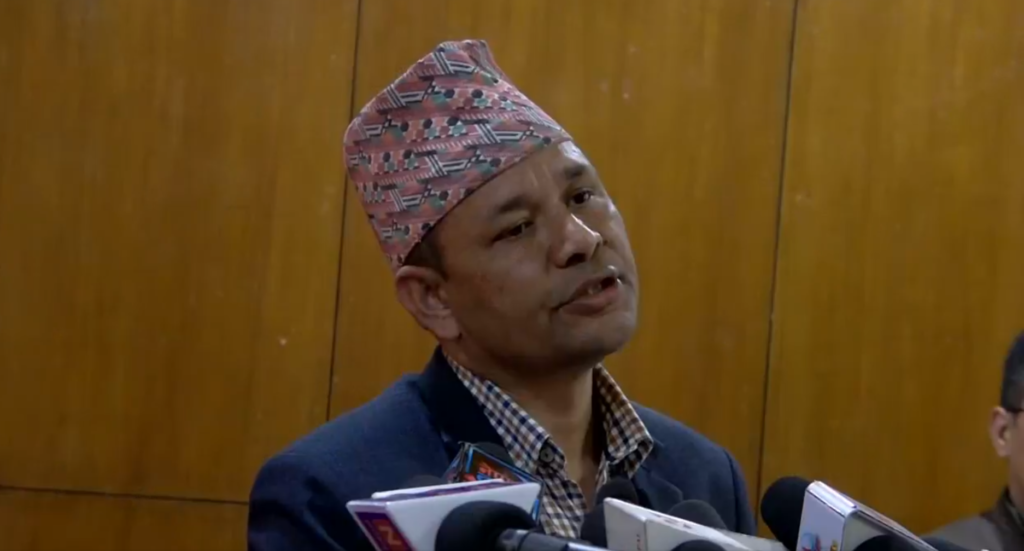
Jhankar Bahadur Rawal, the Information Officer of National Human Rights Commission stated that the concept of social justice was much larger than legal justice. “Social justice aims at the mainstreaming of the marginalized communities. The right to participation of all stakeholders must be ensured for the realization of social justice”, he said. He also pointed out that few activities needed to be done in order to realize social justice such as the reform of the planning process of the government, constitutional and legal bodies to work with full honesty, and all stakeholders to contribute to the joint efforts aimed at implementing social justice.
Nabaraj Pyakurel, the Deputy Development Commissioner of the Kathmandu Valley Development Authority shared the responsibility of the Authority. He stated that the Authority had dialogues with National Land Commission on the issue. He stated that the concerned political as well as administrative leadership must take on the role of a manager to protect the rights of all stakeholders. He expressed the commitment on behalf of the Authority that in the process of achievement of developed city, nobody would be deprived of their rights.
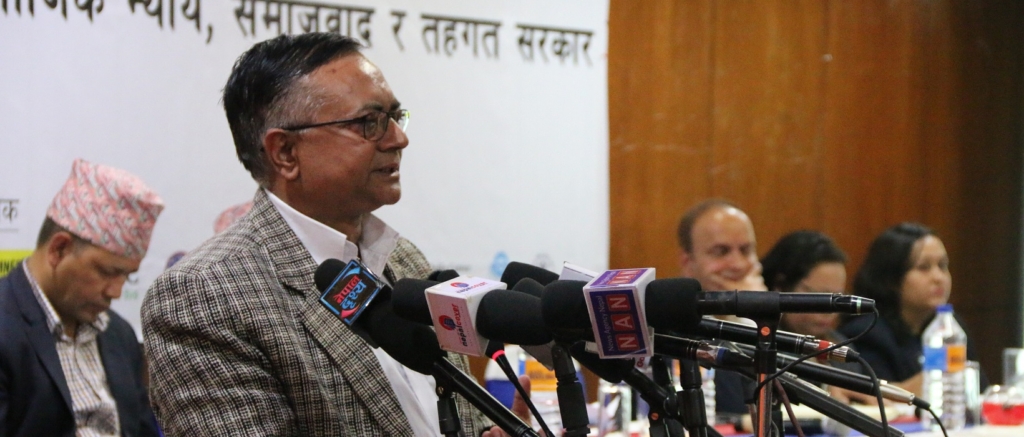
Surya Raj Dahal, Joint Attorney General of the Office of the Attorney General said that the letter of the constitution regarding social justice and socialism needs to be translated into reality as well. He reminded that all persons had equal dignity, and therefore, all should be honored. He provided the example of how the entire Arab Spring started due to self-immolation of a street vendor who was disallowed to sell fruits in the streets. He expressed that the State should focus on providing equality with social justice.
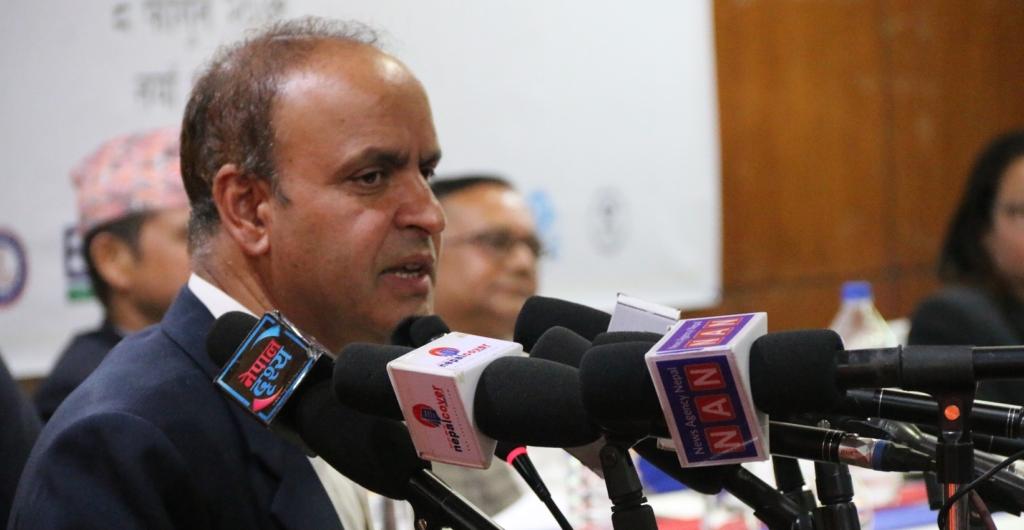
Aruna Joshi, Joint Secretary of the Office of the Prime Minister and Council of Minsters notified that the OPMCM was working to coordinate the efforts of all relevant commissions and tiers of government to fulfil the human rights of the citizens through the fifth National Human Rights Action Plan. She notified that, as per the National plan, human rights coordination committee is proposed in all three tiers of government, but such committees had not been formed as of the date. She also expressed the need to link development and social justice with decent employment so that there would be availability of economic opportunities and jobs.
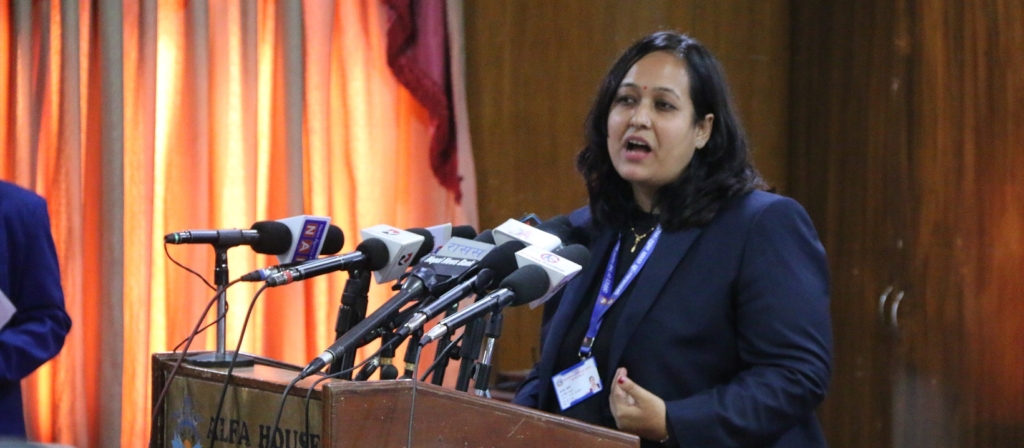
Honourable Saraswati Subba, Member of the House of Representatives stated that she worked as an integral part of the movement of informal settlers and that while the experiences shared by the victims were new for many, they were not new for her. She questioned whether the provisions of social justice in the constitution was being implemented. She stated that it was the right time to question whether all those with authority and responsibility sincerely worked in that regard. She called on the discussion series to take the form of a movement. She expressed her commitment to relentlessly speak for the landless, informal settlers, and the street vendors in the parliament. She cautioned that the relation between National Land Commission and Kathmandu Metropolitan City needed to improve and that they needed to work together to resolve the issue of landless and informal settlers in Kathmandu.
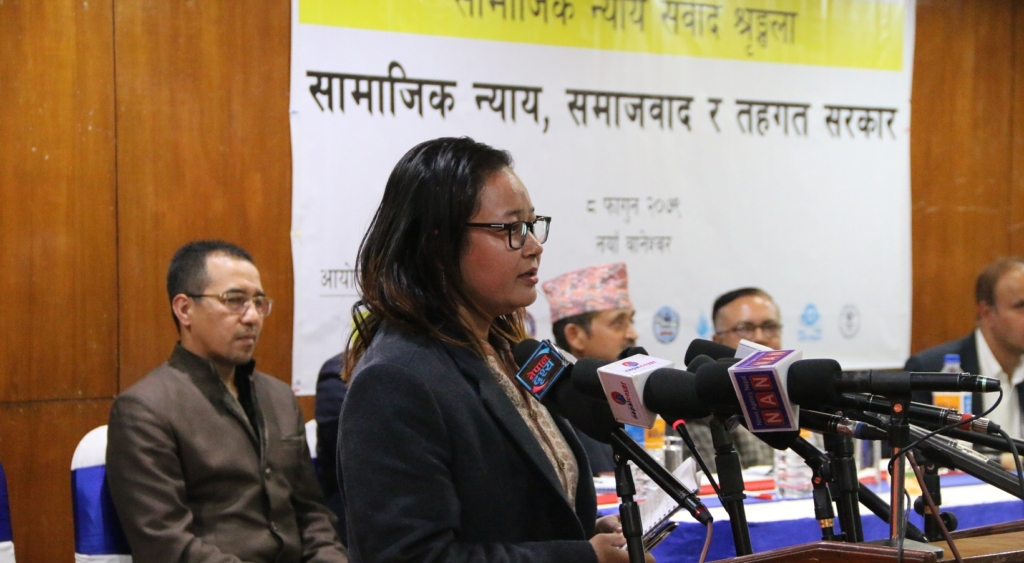
Krishna Timsina, the Secretary of Indigenous Nationalities Commission stated that the concept of social justice was limited to mere distribution of allowances but that the concept was more comprehensive. He further expressed that the main impediment for realizing social justice was bad governance, misallocation of resources, unaccountable political system and corruption.
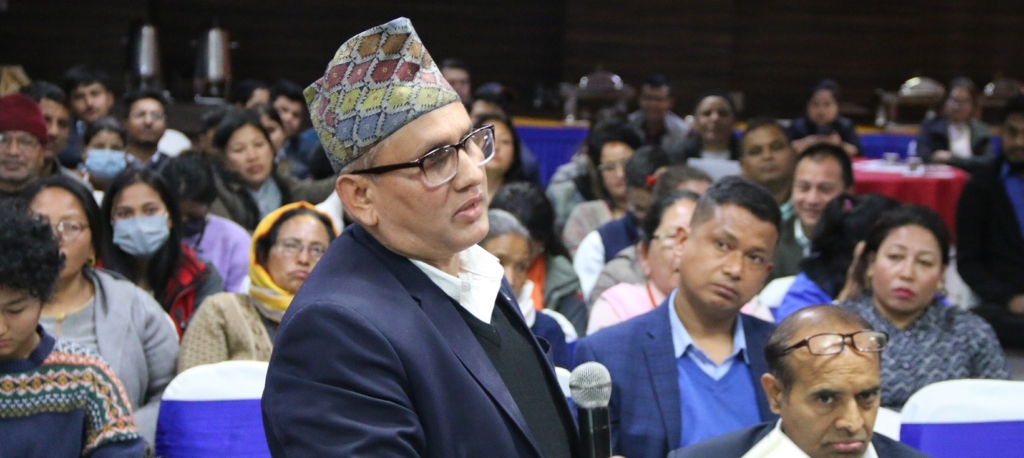
Charan Prasai, Coordinator of Accountability Watch Committee expressed that the State should not commit injustices upon its citizens and that it should not ask its citizens to tolerate injustices. He pointed out that the constitution has not only guaranteed right to life but also the right to live with dignity, and that there is contradiction between the State’s policy and actions. He also questioned the attitude of the State as it only listens to the people that protest. He expressed his solidarity towards the movement for a just and dignified right to life of informal settlers.
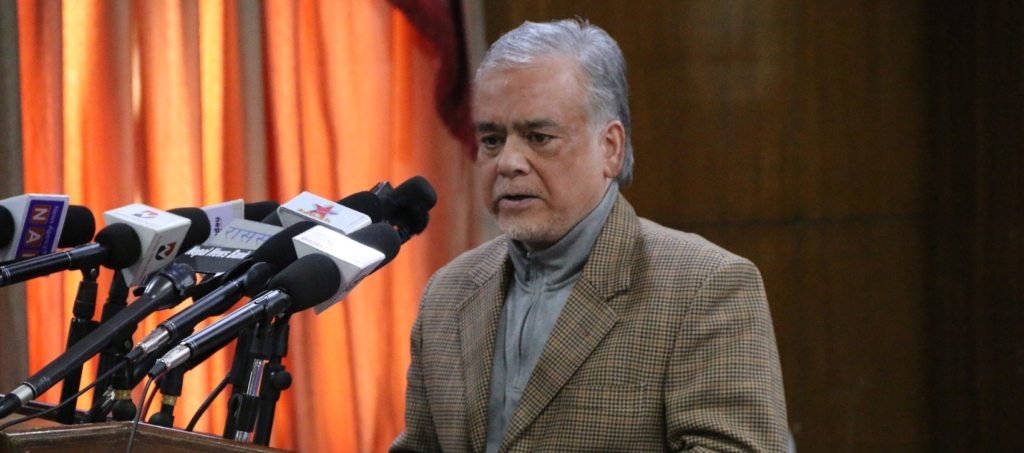
Rajan Kuikel, former Chair of AI Nepal marveled at the utter silence and shirking of responsibilities by the Kathmandu Metropolitan City authorities towards meeting and consulting with the stakeholders for a just and durable solution of the problem. He also opined that the different commissions whose constitutional and legal duties it is to work on the issues of social justice have failed to deliver.
Advocate Karuna Parajuli stated that the local government had a very important role in enhancing social justice and ensuring the rights of the citizens. Shreeram Adhikari, former NHRC staff, stated that there were constitutional guarantees, legal procedures and international legal documents that required to be followed while carrying out evictions. He called on the concerned authority to follow those already available standards. Speaking on behalf of the organizers, Kamala Bishwakarma, Chair of Jagaran Media Centre and former member of the Constituent Assembly stated that the dialogue series should and would continue as it was also the responsibility of CSOs and general citizens to hold the State accountable regarding the issues of social justice. She pointed out that women are most at the receiving ends in all incursions of human rights. She urged the relevant authorities to promulgate the required delegated legislations required for the realisation of food security and right to adequate housing.
Kalika Khadka, the Chair of Constitutional and Judicial Journalists’ Forum, on behalf of the organizers, thanked all the participants, panelists and guests and hoped that the much-needed collaborative and affirmative actions would be initiated from all quarters to address the issued discussed and highlighted. The event was wrapped up by advocate Shyam Kumar Bishwakarma, Chair of JuRI-Nepal who summarized the key points of the event and expressed his commitment that the dialogue series would continue.


